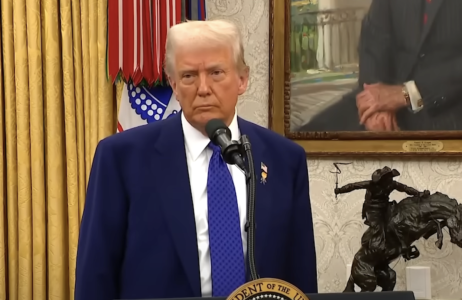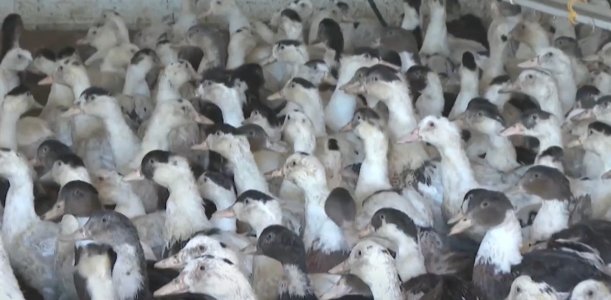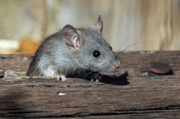Trump administration’s actions and the bird flu: What you need to know about the potential public health impact
By
Veronica E.
- Replies 0
The bird flu outbreak continues to raise concerns across the country, with rising egg prices and an increasing risk to public health.
As the situation unfolds, questions have arisen about how the Trump administration's policies might influence the government's ability to respond effectively to this growing threat.
With decisions such as budget cuts and communication restrictions, some experts worry these actions could hinder efforts to address the avian flu.
But what does this mean for our communities, especially those over 60 who may be more vulnerable to infectious diseases?
The GrayVine is here to provide a clear look at how these policy changes could impact public health, helping our readers stay informed and prepared during this important time.

One key issue that has emerged is the freeze on nearly all external communications from the Centers for Disease Control and Prevention (CDC) under the Trump administration.
This freeze left state and local health officials without timely updates on the spread of the bird flu. The delay in communication has made it difficult for local health departments, particularly in rural areas, to stay informed and implement effective measures.
Although some communications have resumed recently, the lack of real-time information may have already affected efforts to contain the virus.
The Trump administration's budget cuts and restrictions on National Institutes of Health grants have raised concerns about funding for public health initiatives.
These financial limitations have particularly affected smaller health departments, which rely heavily on federal support to carry out their work.
Some have had to freeze hiring or delay critical projects, which could impact their ability to respond to the avian flu outbreak effectively.
Another challenge has been the delay in filling key positions within the Trump administration, including those in the Departments of Health and Human Services and Agriculture.
While addressing bird flu is a priority for these departments, a clear, coordinated strategy has yet to emerge.
These delays have created uncertainty and left public health officials without necessary guidance, affecting the overall response to the outbreak.

As bird flu continues to spread, poultry flocks are being impacted, and egg prices are rising. While human transmission of the virus remains rare, there have been cases of avian flu in people, and the virus is evolving.
Scientists are concerned that if the virus mutates further, it could pose a greater risk of human-to-human transmission.
Despite concerns from the scientific community, the response has been criticized as slow, with challenges exacerbated by the transition into a new administration.
While government actions are critical, there are steps we can all take to protect ourselves and our communities from the potential impact of bird flu:
As we continue to navigate the complexities of the bird flu outbreak, staying informed and prepared is key. While the situation evolves, your health and safety remain our priority. We encourage you to stay proactive and follow expert guidance. Together, we can support each other in these challenging times.
Related articles:
Alarming discovery: Rare bird flu strain strikes dairy cows—what’s happening?
Are you at risk? The shocking discovery about silent bird flu infections
Avoid bird flu fears: Get the eggs experts say you should be buying now!

Here at The GrayVine, we aim to provide our readers with the information they need to stay safe and informed. Have you noticed the effect of rising egg prices in your area? What precautions are you taking to protect yourself and your loved ones? Join the conversation in the comments below!
Read next: Discover the surprising secret to losing weight by listening to this type of music!
As the situation unfolds, questions have arisen about how the Trump administration's policies might influence the government's ability to respond effectively to this growing threat.
With decisions such as budget cuts and communication restrictions, some experts worry these actions could hinder efforts to address the avian flu.
But what does this mean for our communities, especially those over 60 who may be more vulnerable to infectious diseases?
The GrayVine is here to provide a clear look at how these policy changes could impact public health, helping our readers stay informed and prepared during this important time.

President Donald Trump during his administration, as concerns grow over the response to the avian flu outbreak and its impact on public health. Image Source: YouTube / Forbes Breaking News.
Communication Challenges
One key issue that has emerged is the freeze on nearly all external communications from the Centers for Disease Control and Prevention (CDC) under the Trump administration.
This freeze left state and local health officials without timely updates on the spread of the bird flu. The delay in communication has made it difficult for local health departments, particularly in rural areas, to stay informed and implement effective measures.
Although some communications have resumed recently, the lack of real-time information may have already affected efforts to contain the virus.
Budget Cuts and Their Impact
The Trump administration's budget cuts and restrictions on National Institutes of Health grants have raised concerns about funding for public health initiatives.
These financial limitations have particularly affected smaller health departments, which rely heavily on federal support to carry out their work.
Some have had to freeze hiring or delay critical projects, which could impact their ability to respond to the avian flu outbreak effectively.
Unfilled Positions and Delays in Action
Another challenge has been the delay in filling key positions within the Trump administration, including those in the Departments of Health and Human Services and Agriculture.
While addressing bird flu is a priority for these departments, a clear, coordinated strategy has yet to emerge.
These delays have created uncertainty and left public health officials without necessary guidance, affecting the overall response to the outbreak.

Avian flu continues to affect poultry populations, raising concerns for public health and the agriculture industry. Image Source: YouTube / WION.
Understanding the Risks
As bird flu continues to spread, poultry flocks are being impacted, and egg prices are rising. While human transmission of the virus remains rare, there have been cases of avian flu in people, and the virus is evolving.
Scientists are concerned that if the virus mutates further, it could pose a greater risk of human-to-human transmission.
Despite concerns from the scientific community, the response has been criticized as slow, with challenges exacerbated by the transition into a new administration.
Also read: A nutritionist reveals the traditional flu remedies that actually work
What You Can Do
While government actions are critical, there are steps we can all take to protect ourselves and our communities from the potential impact of bird flu:
- Stay informed about the latest updates on bird flu from trusted sources such as the CDC.
- Follow good hygiene practices, including frequent handwashing, to reduce the risk of infection.
- For those with backyard poultry, adhere to biosecurity measures to prevent the spread of the virus.
- Be mindful of where you source your food, particularly eggs and poultry products.
As we continue to navigate the complexities of the bird flu outbreak, staying informed and prepared is key. While the situation evolves, your health and safety remain our priority. We encourage you to stay proactive and follow expert guidance. Together, we can support each other in these challenging times.
Related articles:
Alarming discovery: Rare bird flu strain strikes dairy cows—what’s happening?
Are you at risk? The shocking discovery about silent bird flu infections
Avoid bird flu fears: Get the eggs experts say you should be buying now!
Key Takeaways
- The White House under President Donald Trump imposed spending cuts and communication restrictions that have affected the public health response to the avian flu outbreak.
- Despite rising egg prices and the risk to human health, there was a lack of a clear strategy from the new administration on how to address the spread of bird flu.
- Key administrative positions relevant to pandemic response remained unfilled, and public health officials experienced disruptions in regular updates from the CDC.
- The agriculture industry and public health researchers have urged the government to increase testing, research funding, and assistance for farmers to combat the avian flu more effectively.
Here at The GrayVine, we aim to provide our readers with the information they need to stay safe and informed. Have you noticed the effect of rising egg prices in your area? What precautions are you taking to protect yourself and your loved ones? Join the conversation in the comments below!
Read next: Discover the surprising secret to losing weight by listening to this type of music!






